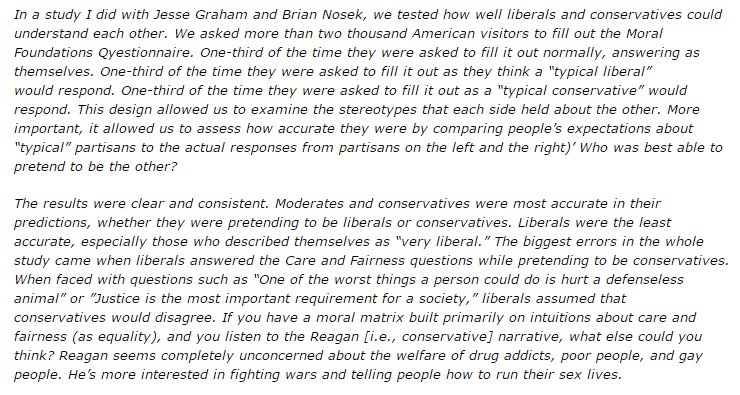bigfield,
Yes, I think you're pretty much on the money with this one. However, I'm particularly interested in the 'equality' angle.
The philosopher John Rawls, in his book 'A Theory of Justice' suggested a thought experiment. He imagined that a person could be reincarnated in a society of either 1. Fairness and everyone having enough to get by or 2. Unfairness and a high chance of being rich or destitute. Rawls, a left wing thinker, had the idea that most people would choose 1. However, in my discussions over the years I have found quite a few conservative types who opted for 2.
This implies to me that conservatives, while apparently fearing change, may not fear risk so much. Maybe their fear of equality and liking of inequality leads them to think that they will most likely be the lucky ones, so what the heck? There is certainly something in this thought experiment that gives us a clue to both conservative and liberal thinking. One point is that liberals generally think quite a lot about the suffering of others and hope/try to ameliorate such suffering. This would indicate their choice of 1. which again has been my experience in discussions with liberal types.
A.
This seems to be a common belief - that whatever happens, you will be one of the leading characters, and not a mere extra. Everyone is the star of their own story, so they say things like "Oh, I do wish I had been born in the Middle Ages" - The assumption being that they would be a knight, a princess or a king. The same happens with 'past life regression' - everyone turns out to have been important in their past life. This rather flies in the face of the fact the 99% of medieval humanity were dirt-poor serfs who lived short tedious and grindingly poor lives dominated by hard labour, famine and disease; And that princesses and kings were semi-mythical creatures in their world, that a peasant might, if he was incredibly fortunate, glimpse in the distance once or even twice in his entire miserable life.
This same ego-centric idea that it is others who will play the menial roles in life is what leads poor white Americans to vote republican - so that when they become millionaires, they won't be imposed upon by excessive taxes. It's also the reason why people buy lottery tickets and engage in other forms of gambling with tiny odds of winning. People just cannot bring themselves to truly believe that they are ordinary. But of course, extraordinary people are rare exceptions, so most people are doomed to be disappointed.
There are also the upper-middle-class born-to-rule types, the ones who fill the ranks of the Young Liberals: those "gormless, intolerant little twerps", those cheap Marie Antoinette knockoffs, who imagine themselves as elites.


 If only!
If only!